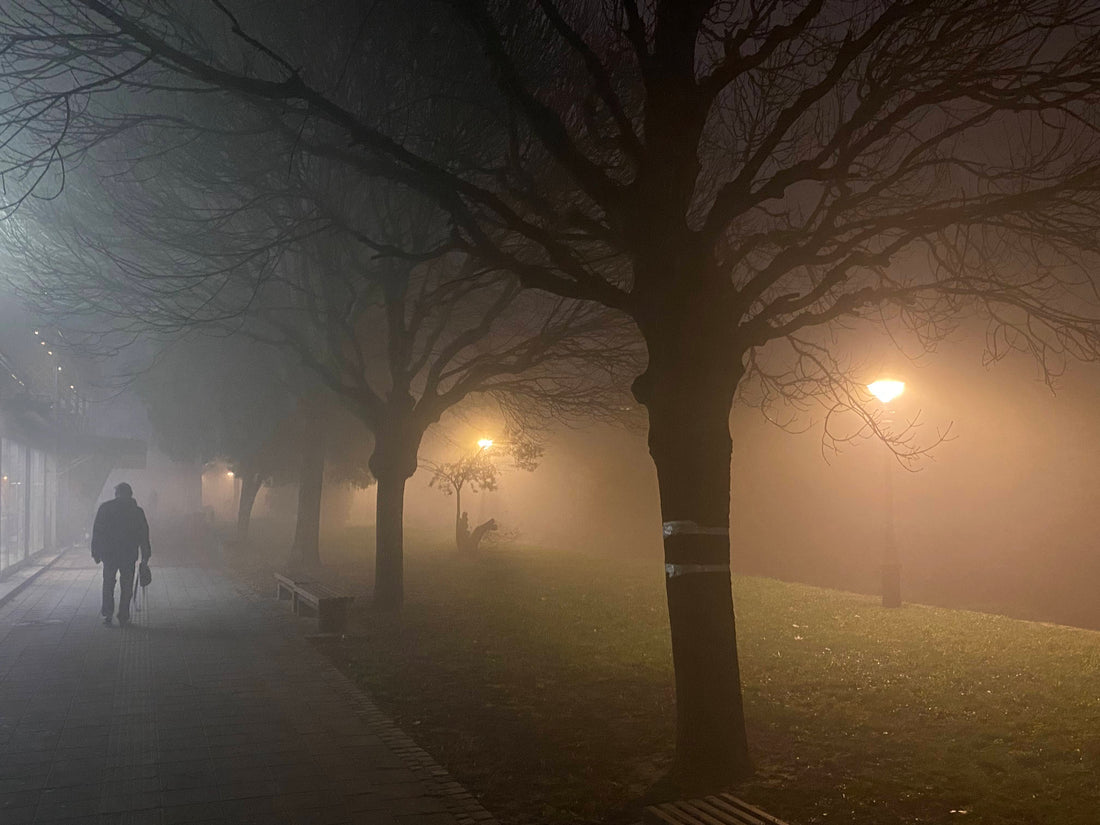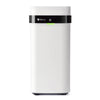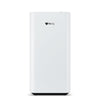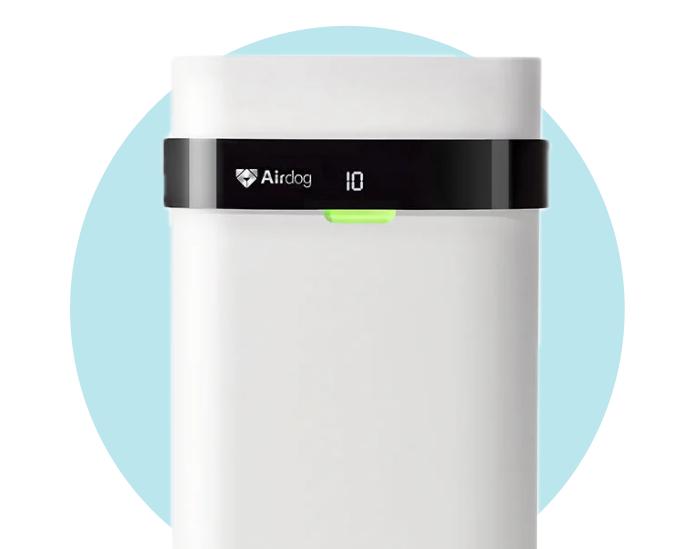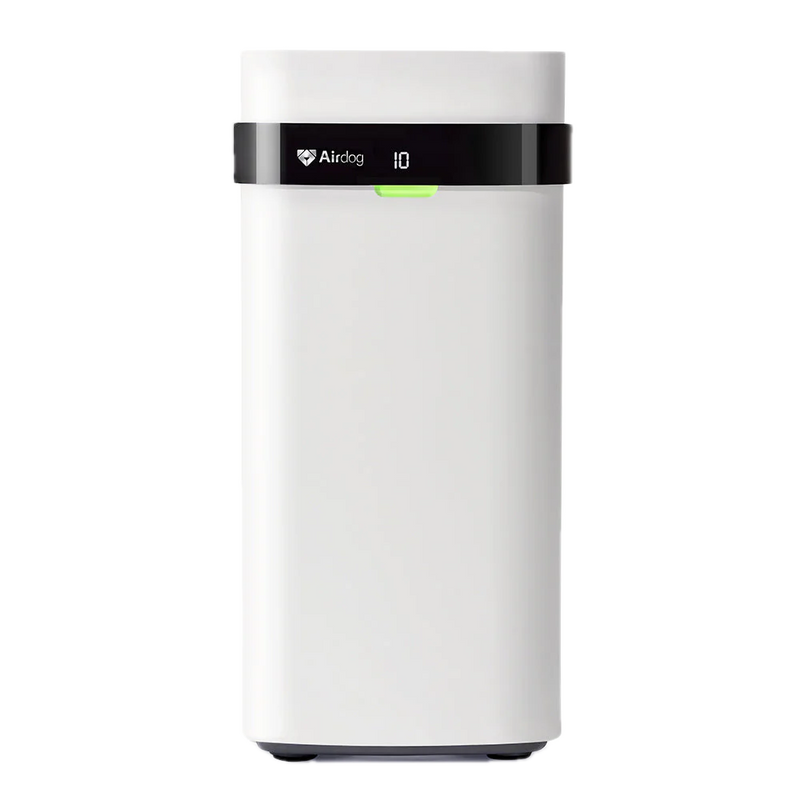Air quality isn’t a constant. It fluctuates throughout the day, affected by temperature, wind, human activity, and environmental conditions. But many people notice something odd: they breathe easier during the day, only to wake up congested or coughing in the middle of the night. So what’s going on?
Does Air Quality Get Worse at Night?
In short, yes, air quality often gets worse at night. As the sun sets and temperatures fall, several environmental factors combine to trap air pollutants closer to the ground. This means that air quality at night can decline significantly compared to daytime hours.
The Science Behind Nighttime Pollution
During the day, warm air rises, carrying particulate matter, gases, and other air pollution higher into the atmosphere. This process, known as vertical mixing, disperses pollutants and improves air quality.
At night, however, the ground cools rapidly while the air above it remains warm. This creates a temperature inversion, which acts like a lid, trapping pollutants in the lower atmosphere, right where we breathe.
Reduced Wind Means More Pollution
A big factor is wind. Less wind at night means fewer chances for pollutants to disperse. This stagnant atmosphere causes airborne particles to accumulate, particularly in urban areas with dense traffic and industrial activity. Think of it like a lid over your neighborhood, trapping vehicle emissions, smoke, and dust right where you live and sleep. This effect is even more pronounced in cities surrounded by hills or valleys, where vertical mixing is limited and poor air quality tends to settle in for the night.
In addition, nighttime activities such as late-night traffic, barbecues, or nearby factories operating 24/7 can still release pollutants into the air, even without enough wind to carry them away. The result? A buildup of pollution that can linger until morning. Even in residential areas, pollution from street-level sources, such as delivery trucks or gas-powered lawn equipment, can become trapped overnight. If your home is located near a busy road or industrial area, consider keeping your windows closed at night and using an air purifier to minimize exposure.
HVAC Systems Can Contribute
At night, most homes rely on HVAC systems to regulate indoor air. These systems often recirculate the same air, and if the filters are clogged or outdated, they can reintroduce pollutants such as pet dander and volatile organic compounds into your indoor air quality. HVAC systems aren’t designed to remove fine particles unless they’re equipped with specialized filters, which means that without proper upgrades, they may actually contribute to a decline in indoor air quality over time.
Moreover, HVAC systems can harbor mold, bacteria, and dust deep within ducts if not regularly cleaned, which can worsen indoor air quality. Running these systems overnight without proper maintenance may unknowingly spread pollutants throughout your home. This is especially true in humid environments, where condensation in ducts can promote mold growth. Scheduling regular HVAC inspections, using high-quality filters, and incorporating an air purifier in sleeping areas are essential steps for healthier air at night.
Poor Air Circulation Indoors
Most people sleep with their windows closed, cutting off the flow of fresh air. Combine this with increased humidity from people breathing in a closed space, and it’s a recipe for poor air quality. Without proper ventilation, indoor air becomes stagnant and can become more polluted than outdoor air. If you wake up with a dry throat or stuffy nose, your room may be lacking in proper airflow and suffering from an invisible buildup of airborne irritants.
This lack of circulation can be especially problematic in newer, energy-efficient homes that are built to be airtight. While great for conserving energy, these tightly sealed environments can trap air pollutants, leading to poor air quality at night. Gases from furniture, carpet, or cleaning supplies can slowly release into the air, right where you're trying to rest. Investing in an air purifier with strong filtration and using a dehumidifier to maintain balanced moisture levels can help combat this buildup and create a fresher nighttime environment.
Common Nighttime Air Pollutants
Some of the most stubborn air pollutants that linger at night include:
-
Particulate matter (PM2.5)
-
Nitrogen dioxide
-
Carbon monoxide
-
Dust particles
-
Volatile organic compounds (VOCs)
These pollutants can cause or exacerbate health risks, such as asthma, allergies, and respiratory irritation, particularly when exposure is prolonged during nighttime hours.
Does Indoor Air Quality Also Get Worse at Night?
Yes. Even without outdoor pollutants sneaking in, indoor air quality can degrade overnight. Dust, pet dander, and VOC emissions from furniture or cleaning products accumulate. Add to that our natural tendency to seal up our homes at night, and you’ve got air that feels stale and heavy come morning.
Health Effects of Poor Nighttime Air
Breathing poor-quality air while you sleep doesn’t just interrupt your rest. It can worsen asthma symptoms, trigger stuffy noses, cause throat irritation, and lead to long-term problems with your respiratory system.
Children, the elderly, and individuals with pre-existing respiratory conditions are particularly vulnerable to air quality that is often worse at night.
How to Protect Yourself at Night
Here are some preventive measures you can take:
-
Use a high-quality air purifier in bedrooms
-
Replace HVAC filters regularly
-
Keep your windows closed if outdoor pollution is high
-
Consider using exhaust fans in nearby bathrooms
-
Limit the use of chemical-based cleaning products in the evening
Why Air Purifiers Matter at Night
An air purifier is one of the most effective ways to improve air quality indoors while you sleep. It can continuously remove dust, VOCs, particulate matter, and pet dander, helping you wake up breathing easier. Many purifiers now operate with ultra-quiet modes that won’t disturb your rest, making them ideal for bedrooms. In fact, having one in the room can significantly reduce allergy symptoms and asthma flare-ups.
Unlike relying solely on your HVAC system or cracking open a window (which can let in outdoor pollutants), an air purifier actively cleans your air without compromise. Advanced purifiers like Airdog’s can work quietly in the background. While you sleep, they ensure that allergens and dust particles are being captured or neutralized, so your lungs can rest as well as your body. Over time, this nightly purification can contribute to improved respiratory health and better sleep quality.
Airdog: The Nighttime Air Quality Solution
Airdog’s advanced air purifier technology offers a serious upgrade for breathing clean air at night. Using patented TPA® technology, Airdog goes beyond trapping particles. It actively destroys pollutants, offering continuous purification while you rest.
Unlike traditional HEPA filters that need constant replacing, Airdog’s washable collection plates eliminate waste and ensure long-term savings. It's an ideal solution for anyone dealing with poor air quality at night, whether from indoor air pollutants or temperature inversion effects.
Wake Up Refreshed
Getting a good night’s sleep starts with clean air. Don’t let the poor air quality at night disrupt your health and comfort. Invest in effective filtration to maintain strong indoor air quality around the clock.

